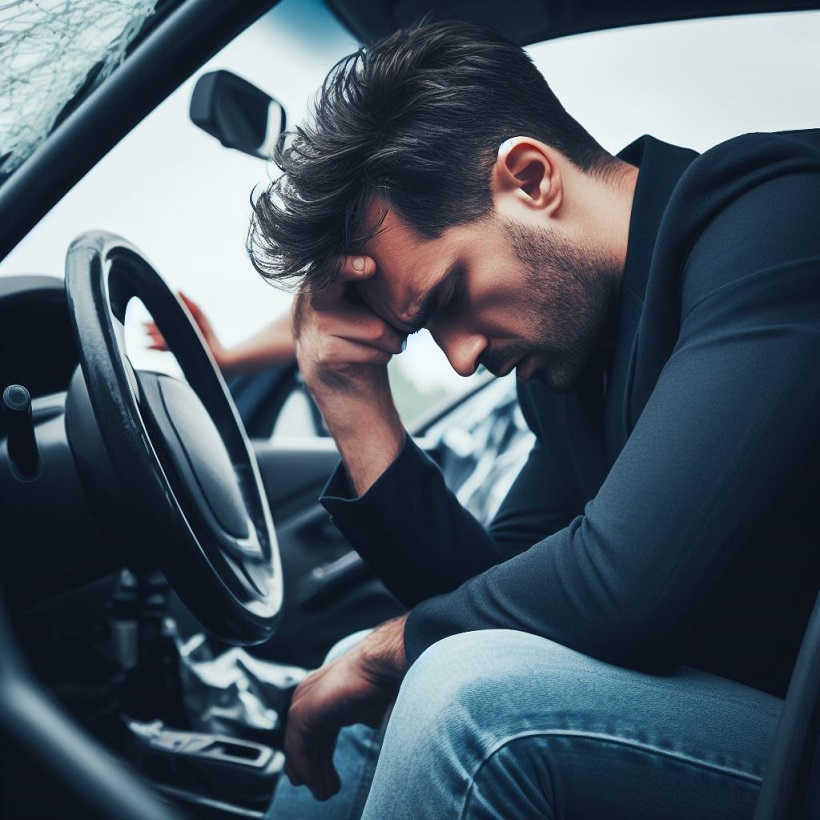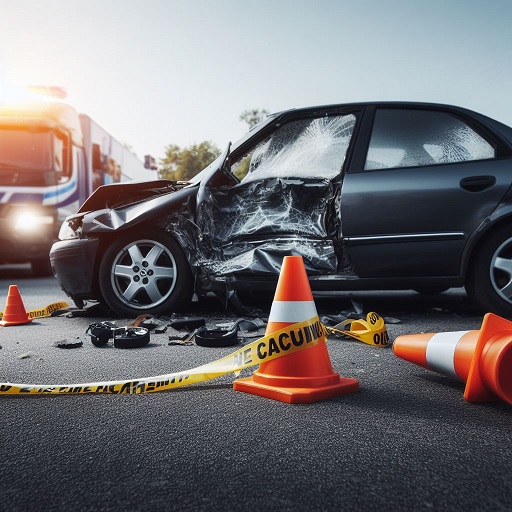Driving a car that is being financed without insurance can put you in a precarious situation. While car insurance is not legally mandated in all states, it is essential to protect yourself financially and legally in the event of an accident. So, what happens if you crash a financed car without insurance?
Key Takeaways
- Crashing a financed car without insurance can lead to significant financial, legal, and personal consequences.
- You may be liable for damages to other parties, which can result in costly legal actions and out-of-pocket expenses.
- Without insurance, you may face difficulty dealing with damages and outstanding loan balances with the financing company.
- Your credit score may take a hit, and you may face higher insurance rates in the future.
- Always hold insurance for a financed car to ensure financial and legal protection in case of an accident.

Consequences of Crashing a Financed Car Without Insurance
Driving a financed car without insurance can be a costly mistake. If you crash the car, you may face severe financial consequences. Not only will you have to pay for any damages to the car itself, but you may also be liable for any damages to other cars or property.
One of the most significant consequences of crashing a financed car without insurance is the impact on your credit score. If you’re unable to pay for the damages out of pocket, your financing company may report your inability to make payments. This may severely damage your credit score, and it will become harder for you to secure loans or financing in the future.
Additionally, if you’re found to be at fault for the accident, you may also face legal consequences. Depending on your state, you may be subject to fines, penalties, or even jail time. If someone is injured in the accident, you may also be responsible for paying their medical bills.
Furthermore, if you don’t have insurance, you won’t be able to file a claim to cover the damages. This means that you’ll have to pay for the repairs or replacement of the car out of pocket. Depending on the extent of the damages, this could be a significant financial burden.
In summary, if you crash a financed car without insurance, you may face severe financial and legal consequences. It’s essential to have insurance to protect yourself and your car in the event of an accident. By having insurance, you can avoid the potential financial and legal pitfalls of driving a financed car without coverage.
Dealing with Damages After Crashing a Financed Car Without Insurance
If you crashed your financed car without insurance, dealing with the resulting damages can be a major headache. Depending on the extent of the damage, repairs can quickly become expensive, and you may be left wondering how you’ll pay for it all.
Your first option is to pay for the repairs out of pocket. This can be a daunting prospect, especially if the damage is extensive and will require a significant amount of money. However, it’s important to remember that leaving the damage unrepaired can potentially lead to even more problems down the line.
If you don’t have the funds to pay for repairs out of pocket, your next option is to work with the financing company to address any outstanding loan balance. Some financing companies may offer collision or gap insurance, which can help cover the cost of repairs. In some cases, the financing company may also be willing to work out a payment plan or modify the loan terms to account for the damage.
Alternatively, if the cost of repairs is simply too high, you may need to consider selling the car for parts or even donating it to a charity. While this may not be the most ideal option, it can help mitigate some of the financial damage caused by the crash.
Ultimately, the best course of action will depend on your individual circumstances. It’s important to weigh all of your options carefully and make an informed decision based on your financial situation and priorities.
Financial Responsibilities After Crashing a Car That Is Being Financed Without Insurance
If you crash a car that is being financed without insurance, you will face significant financial responsibilities. Firstly, you will need to pay for the damages to your own vehicle out of pocket. This can be a costly expense, depending on the severity of the damage.
Additionally, you will be liable for any damages caused to other parties in the accident. These costs can quickly add up, and you may find yourself responsible for paying thousands of dollars in medical bills or property damage.
If you are unable to pay these costs upfront, you may face legal action from the financing company or from the other parties involved in the accident. This can result in wage garnishments or even bankruptcy in some cases.
Furthermore, crashing a financed car without insurance can have long-term financial implications. Your credit score may be negatively impacted, making it more difficult to secure loans or financing in the future. Additionally, you may be required to pay higher insurance rates in the future due to your lack of coverage in this incident.
Overall, the financial responsibilities of crashing a car that is being financed without insurance can be overwhelming. It is important to ensure that you have adequate insurance coverage to protect yourself in the event of an accident.
Legal Implications of Driving a Financed Car Without Insurance
Driving a financed car without insurance can result in severe legal consequences and potential fines. In most states, it is illegal to operate a vehicle without minimum liability insurance coverage that provides financial responsibility for damages to others. If you cause an accident while driving without insurance, you may be held personally liable for all damages, including medical expenses and damages to other vehicles.
Additionally, if you crash a financed car without insurance, you may face legal action from the financing company. This may include repossession of the vehicle or a lawsuit to recover the outstanding loan balance. If the car is repossessed, you may be responsible for any deficiency balance remaining after the car is sold at auction.
If you are sued by the financing company, it could result in a judgment against you, which can be reported on your credit report for up to seven years. This can negatively impact your credit score and make it difficult to obtain future loans or credit.
It is important to remember that driving a financed car without insurance is not only financially risky, but it is also illegal and can result in serious legal consequences.
Pro Tip: Always make sure to maintain adequate insurance coverage for your financed vehicle to protect yourself and your finances.
Options After Crashing a Financed Car Without Insurance
If you find yourself in the unfortunate situation of crashing your financed car without insurance, it’s essential to understand your options moving forward. Here are a few steps you can take:
- Discuss with the Financing Company: The financing company may be willing to work with you to find a solution. You can negotiate a payment plan or a settlement that works for both parties. It’s crucial to communicate with them as soon as possible to avoid further complications.
- Seek Legal Advice: If the financing company is uncooperative or you face legal actions, you may want to consider hiring an attorney. A legal professional can help you understand your rights and represent you in court if necessary.
- Explore Alternative Arrangements: If repairing or replacing the vehicle seems impossible, you may consider alternative arrangements such as public transport, ride-sharing, or borrowing a car from friends or family.
No matter which option you choose, it’s crucial to act quickly and responsibly. Ignoring the situation or failing to meet your financial obligations can result in severe consequences.
Financial Repercussions of Crashing a Financed Car Without Insurance
If you crash your financed car without insurance, you could face some significant financial repercussions that can impact your credit score and long-term financial wellbeing. Here are some of the potential financial consequences:
- Repair costs: If your car is damaged in an accident, you will be responsible for repairing it. Without insurance, you will have to pay for it out-of-pocket, which can be expensive.
- Loan balance: If you still owe money on your car loan, you will still need to pay it off, even if your car is totaled. This means you will have to continue making payments on a car that you can no longer drive.
- Increased insurance rates: If you are at fault for the accident, your insurance rates will increase. If you do not have insurance, you could be held financially responsible for any damages or injuries you caused, which will increase your future insurance rates.
- Legal fees: If you are sued for any damages or injuries you caused, you will need to pay legal fees for representation in court, which can be expensive.
Ignoring or avoiding the financial responsibilities of a car accident can have adverse consequences and negatively impact your credit score. It is important to address the situation immediately and work out a plan to pay for the damages and any outstanding loan balance.
Conclusion
In conclusion, it is crucial to have insurance for a financed car to avoid potential financial and legal consequences. Driving without insurance and crashing a financed car can result in costly out-of-pocket expenses, liabilities for damages to other parties, and a negative impact on your credit score.
If you find yourself in this situation, it’s important to address the damages and outstanding loan balance promptly. Consider negotiating with the financing company or seeking legal advice to explore your options.
Remember, driving a financed car without insurance is not only financially risky but also illegal in most states. So, make sure to purchase insurance to protect yourself and your vehicle from potential damages.
Stay Protected and Responsible
Having insurance for a financed car is not only a legal requirement, but it also protects you from potential financial liabilities. Whether you’re financing a new or used car, make sure to purchase adequate insurance coverage to avoid any potential consequences.
By being financially and legally responsible, you can enjoy the benefits of owning a financed car without the worry of potential damages or liabilities. Stay safe and protected on the roads with proper insurance coverage for your financed vehicle.


